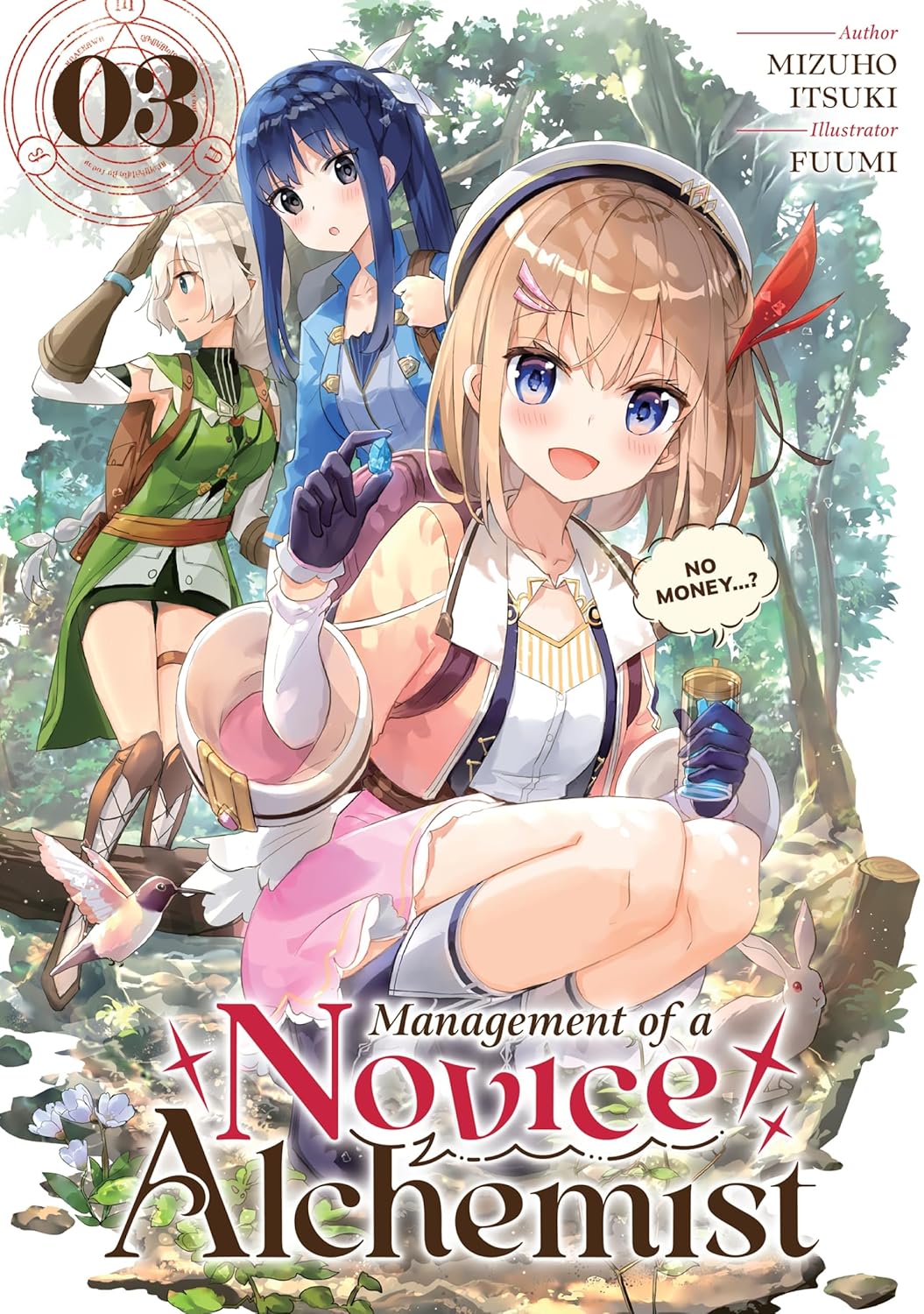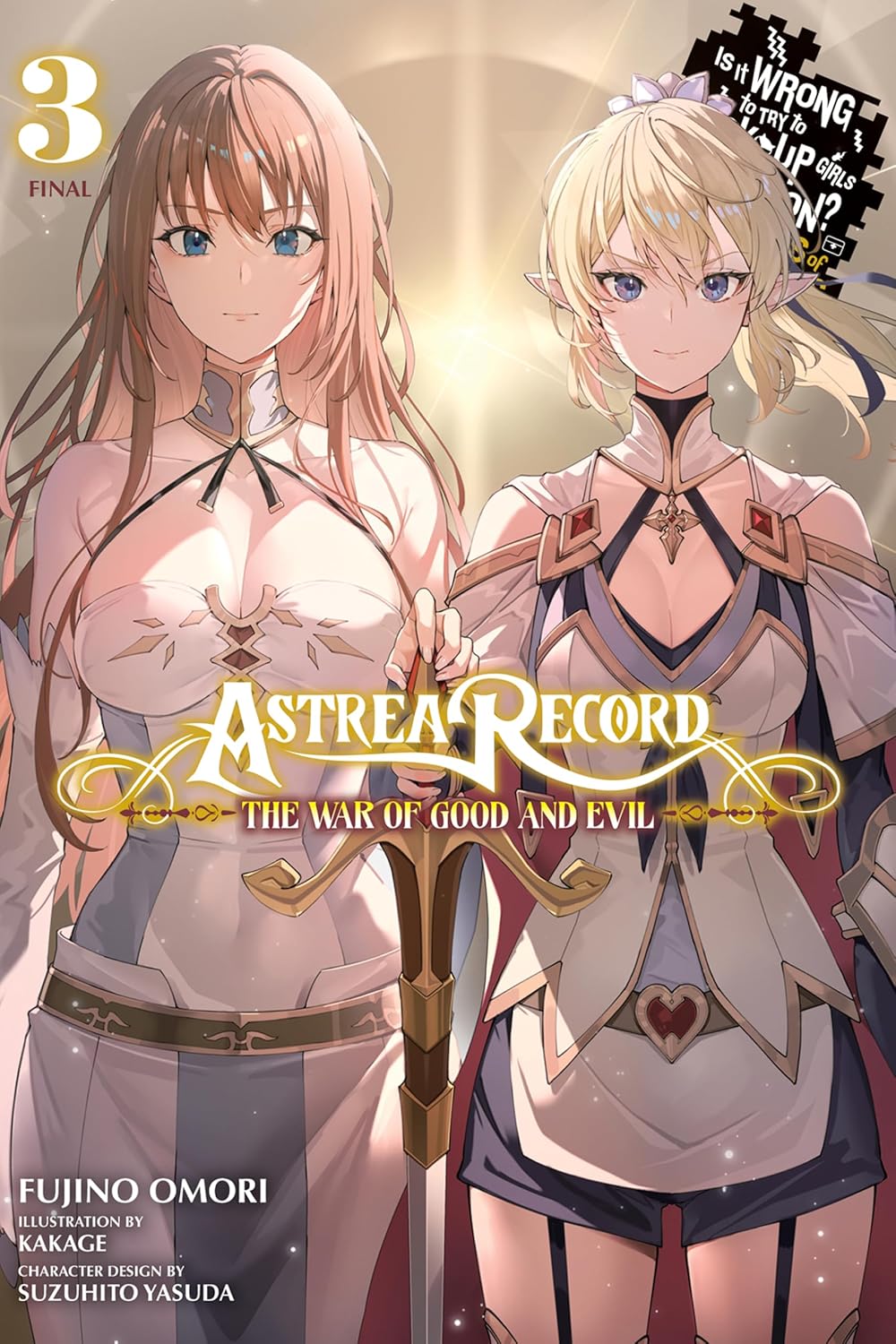By Mizuho Itsuki and fuumi. Released in Japan as “Shinmai Renkinjutsushi no Tenpo Keiei” by Fujimi Fantasia Bunko. Released in North America by J-Novel Club. Translated by Sean McCann.
As I noted earlier, I watched the anime of this series before I read the novels, and I’m rather surprised at how a) the anime did a whole lot of adding/cutting and pasting in a different place, and b) how it usually worked pretty well. The anime is paced like an anime, and gives viewers a reason to be really sympathetic to Sarasa from the get go. The light novel doesn’t bother with either of those, and Sarasa can be quite a morally ambiguous character. Here, we see her having to struggle with the fact that she has friends she cares about and wants to help, even if it might lose her money. There’s never any doubt she’s going to, but just seeing her inner monologue is revealing. She cannot stop thinking of how much everything in her life costs, and how much ingredients cost, etc. It’s not quite presented as a savant thing, but she certainly would do much better with more sensible people around her. Good news there!
After the events of the last book, and a comedic interlude with raw honey and horrible diarrhea, our intrepid gatherers, along with Sarasa, go on a mission to find out why the Hellflame Grizzly stampede happened. This takes them to an inactive volcano which has fire lizards, which they can harvest, with some difficulty, for materials, but also a far more dangerous salamander further up the mountain, which isn’t being hostile so Sarasa ignores it. But when Iris’ father, a noble in charge of two villages, arrives to tell her that in order to solve their own hideous debt (separate from Iris and Kate’s debt to Sarasa), he has to marry her off, Sarasa recognizes the husband Iris is getting paired with as being related to the corrupt merchants she took out last book, and, eventually, makes a decision to help with the debt by going after that salamander after all.
When the anime aired, I heard some talk that the books were yuri, but when I investigated, the answer seems to be “eeeeeh, kinda?”. Having read this volume, I get that. On the one hand, in this world, men can marry men, and women can marry women, There are even (very expensive!) potions to allow you to change sex temporarily for the purpose of siring an heir if you are an LGBT couple. And, to solve their issues, Iris is clearly VERY happy to marry Sarasa, offers Kate as Wife #2 (which Kate seems OK with), and says “your preference might change, who knows?” On the other hand, Sarasa says she’s not interested in women multiple times, and also says she’s too young to get married. I suspect what we’re going to get by the end of this series is Sarasa married to her three wives (no way Lorea’s not getting in on this) in a familial marriage with no sexual aspect to it. I have no idea if that’s yuri or not. But it’s fine, I’m much happier with these four as a family.
Sarasa was a little less terrifying this volume, and we’re starting to see that being in the village is very good for her. Unfortunately, she seems to have pissed off the local lord, which I have a feeling will be the plot of Book 4. This is the last one that had the anime mine it for materials, and it was pretty good.


